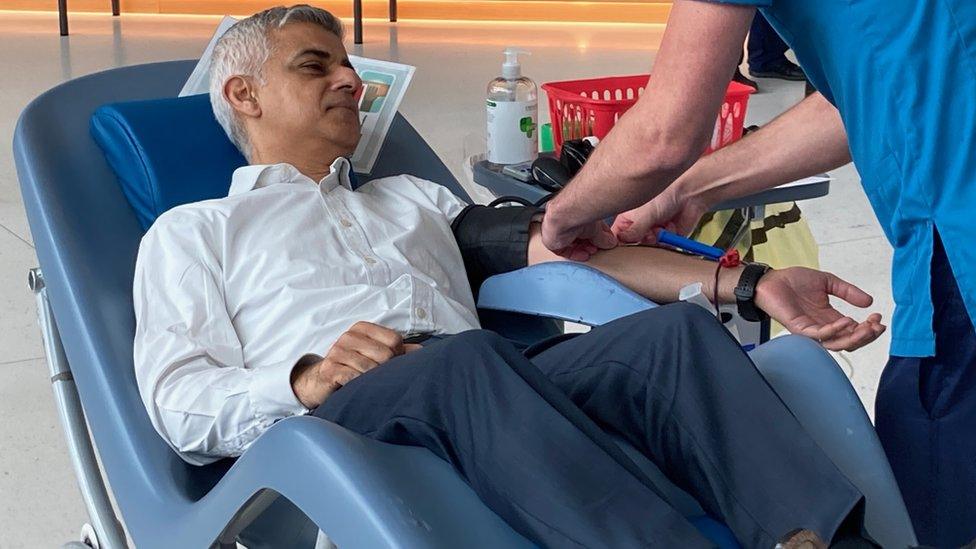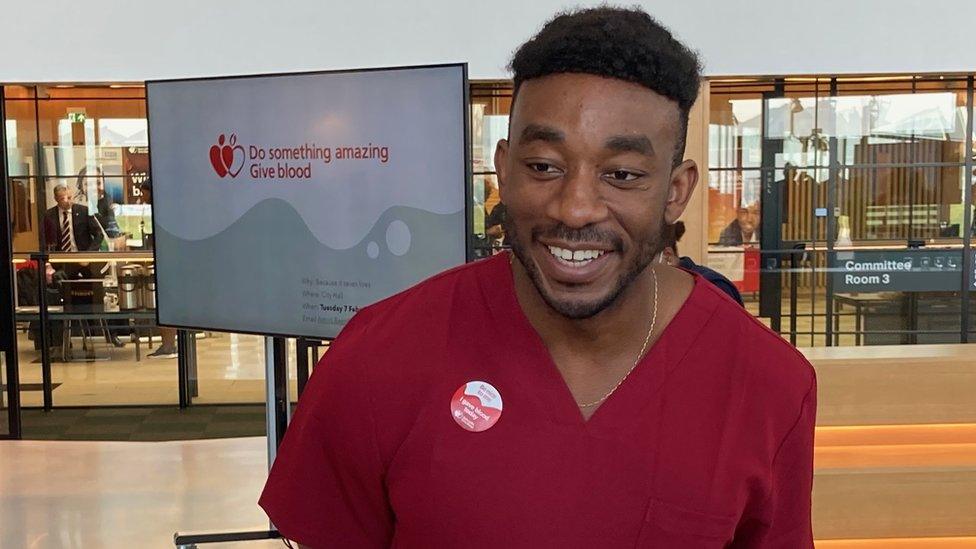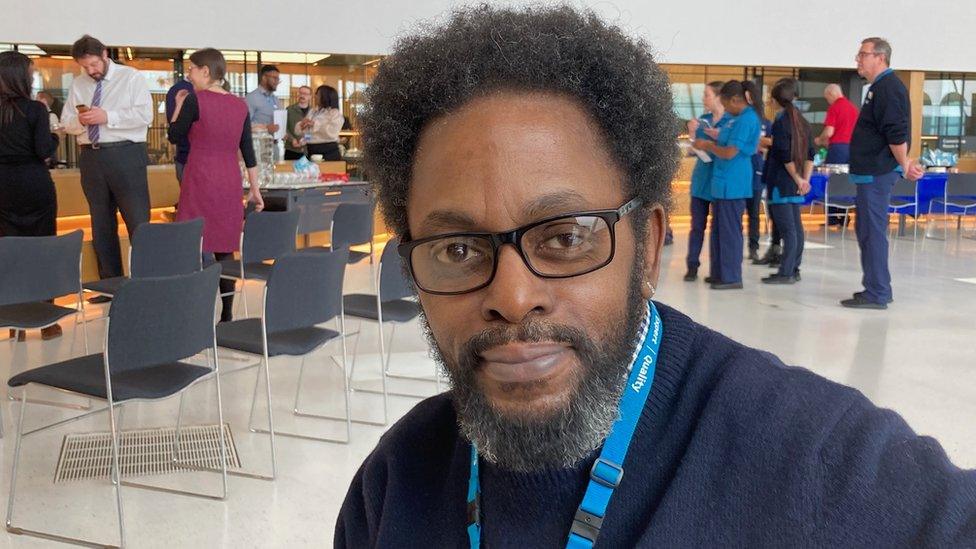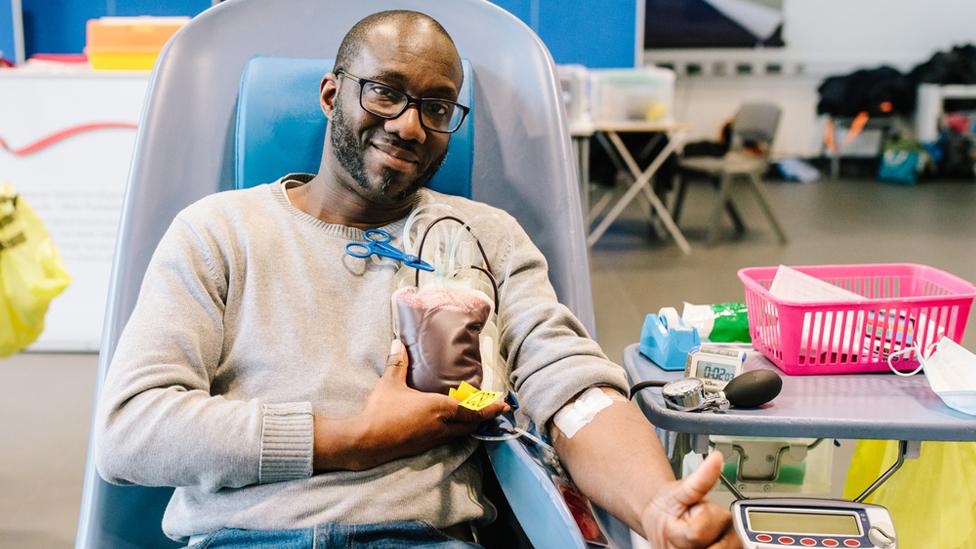London mayor urges people to give blood and save lives
- Published

Sadiq Khan has urged more Black, Asian and minority ethnic Londoners to become blood donors
The mayor of London has donated blood as part of a drive to save lives.
At least 40,000 new donors are needed in the capital each year over the next five years to keep supplying blood for lifesaving treatments, according to the NHS.
There is a particular focus on increasing the number of Black, Asian and minority ethnic donors, who make up fewer than 5% of national donors.
Sadiq Khan said donating blood was "an easy way to be a hero".
"Often people don't think about the fact that the blood must come from somewhere," he added.
Also at the City Hall event was Dr Amos Ogunkoya, from BBC One's The Traitors, who donated blood for the first time.

Dr Amos Ogunkoya from BBC's The Traitors donated blood for the first time at City Hall
Blood donations are particularly important for those who have sickle cell - the fastest-growing genetic condition in the UK - which causes red blood cells to distort and become sticky, blocking vessels and restricting oxygen supply.
The condition mostly affects people of Black heritage and ethnically-matched blood gives the best treatment.
Each month in the UK, 1,300 donors of Black heritage are needed to give blood to help provide transfusions to sickle cell patients, as well as for use in emergencies, childbirth, during surgery and in cancer treatments, the NHS Blood and Transplant (NHSBT) service said.
The rare blood type Ro is also most often needed by patients with sickle cell, with Black heritage donors 10 times more likely to have the Ro subtype.
Last year, hospitals in London asked for 58% more Ro blood than they did five years ago, and the city has the highest number of sickle cell patients in the UK, according to the NHS.
Calvin Campbell, who has sickle cell, receives 10 to 11 units of blood every three to four weeks.
"It takes 120 people a year to keep me alive," he said.

Calvin Campbell said it takes "120 people a year" to keep him alive
Mr Campbell added "historical mistrust of the NHS" was one of the reasons stopping people of Black heritage from donating blood.
He said he understood people's concerns, but called blood donation "the most important gift" for people like him.
People can check their eligibility to donate online, external
David Rose, director of donor experience at NHSBT, said the service was only able to provide matched blood for about half of the hospital requests for Ro blood.
"As one of the most ethnically diverse cities in the world, Londoners have the unique opportunity to be part of the solution by becoming donors," he said.
There are currently around 108,000 donors in the capital city.

Follow BBC London on Facebook, external, Twitter , externaland Instagram, external. Send your story ideas to hellobbclondon@bbc.co.uk, external
Related topics
- Published6 October 2022
